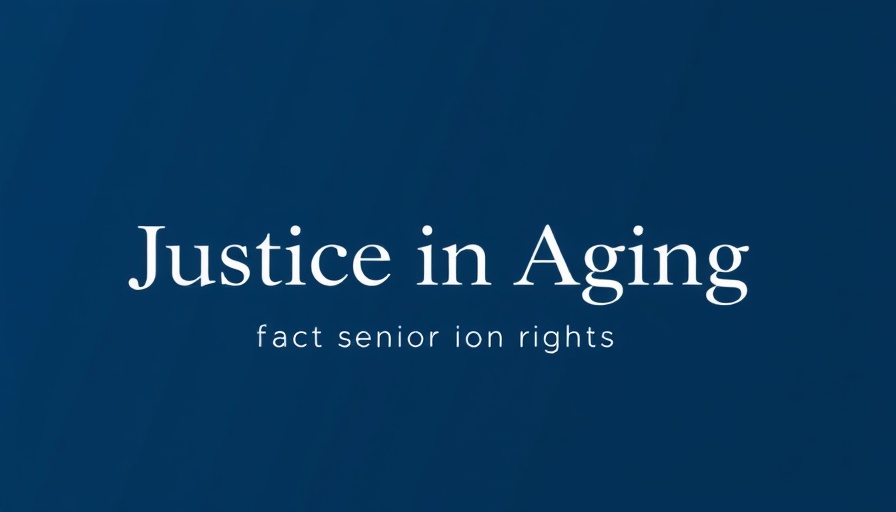
Understanding the Medicare Special Enrollment Period for Formerly Incarcerated Individuals
As the societal landscape evolves, the aging incarcerated population faces unique challenges in accessing healthcare benefits. Particularly, older adults reentering society are often marginalized individuals of color, particularly Black men, impacted by the cumulative effects of systemic inequality. Recognizing the barriers these individuals face, the Medicare Special Enrollment Period (SEP) for formerly incarcerated individuals was introduced to ease the transition back into community life.
The Purpose of the Post-Incarceration Special Enrollment Period
The Post-Incarceration SEP, implemented on January 1, 2023, and modified in January 2025, allows eligible individuals to enroll in Medicare year-round, effectively avoiding penalties that typically accompany late enrollment. Before this policy, seniors returning to their communities often had to wait for the annual Medicare General Enrollment Period, which starts in January. This system not only delayed access to necessary healthcare but also imposed undue financial penalties on already vulnerable populations. The introduction of a 12-month enrollment window marks a significant step forward in ensuring healthcare access for these individuals.
Challenges During Reentry
Returning to the community can be daunting for formerly incarcerated older adults, many of whom are also eligible for Medicaid. However, there are critical issues in how Medicare interacts with Medicaid, especially given that not all returning seniors qualify for both programs. The detangling of these systems can often complicate access to relevant health services, ultimately impacting physical and mental well-being.
What Happens to Medicare While Incarcerated?
It’s important to note that while individuals can maintain their Medicare eligibility during incarceration if premiums are paid, Medicare ceases to cover healthcare services during this time. This often creates confusion about the benefits available upon release. Seniors turning 65 while incarcerated have the right to enroll during the Initial Enrollment Period, but without immediate access to health care services, many do not exercise this right, leading to gaps upon reentry.
The Importance of Advocacy and Awareness
Advocates and healthcare providers play an essential role in increasing awareness and facilitating smoother transitions for formerly incarcerated seniors. Understanding the nuances of the Post-Incarceration SEP, including eligibility criteria and enrollment procedures, arms advocates with the information needed to guide these individuals effectively. Furthermore, there should be well-organized outreach programs aimed at educating both healthcare providers and the individuals themselves about the available benefits.
Future Trends and Insights: The Road Ahead
Moving forward, it's crucial to monitor the effectiveness of the Post-Incarceration SEP. Though the policy is in its nascent stages, preliminary observations indicate an improvement in enrollment rates. Advocates must continue to push for more resources and support systems tailored specifically for this demographic. By fostering partnerships across community organizations and healthcare systems, we can create a robust safety net for older adults transitioning from incarceration.
Moving Towards Better Healthcare Access
Healthcare access for older adults, particularly those with the backdrop of incarceration, is a pressing social issue. As society grapples with systemic racism and inequality, it’s imperative that discussions surrounding the Post-Incarceration SEP remain in the forefront. By prioritizing these conversations, we not only empower individuals, but we also aim to dismantle the barriers that have historically separated them from full community integration.
In conclusion, as the conversation surrounding Medicare enrollment for formerly incarcerated individuals continues, it is critical to involve stakeholders from all sectors—community organizations, healthcare providers, and policymakers. By standing together, advocates can ensure that the rights of these individuals are championed and that access to vital healthcare services is recognized as an essential human right.
 Add Row
Add Row  Add
Add 




Write A Comment